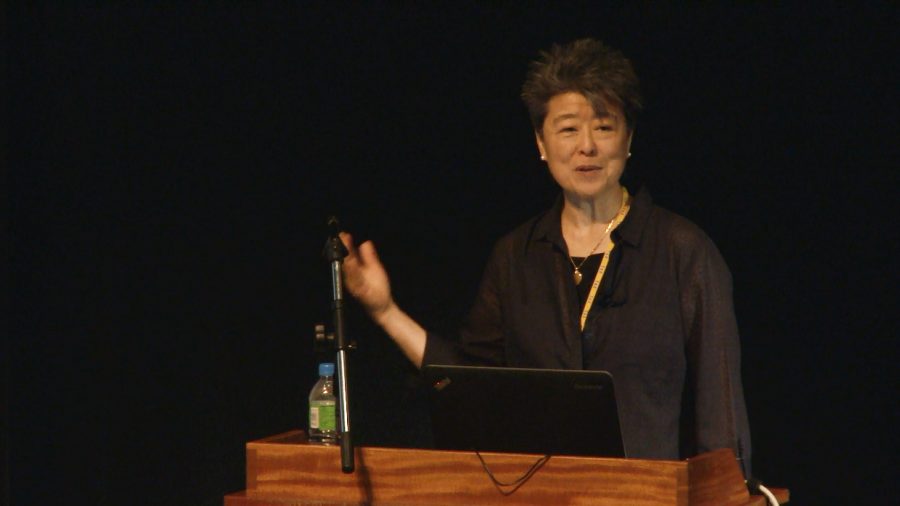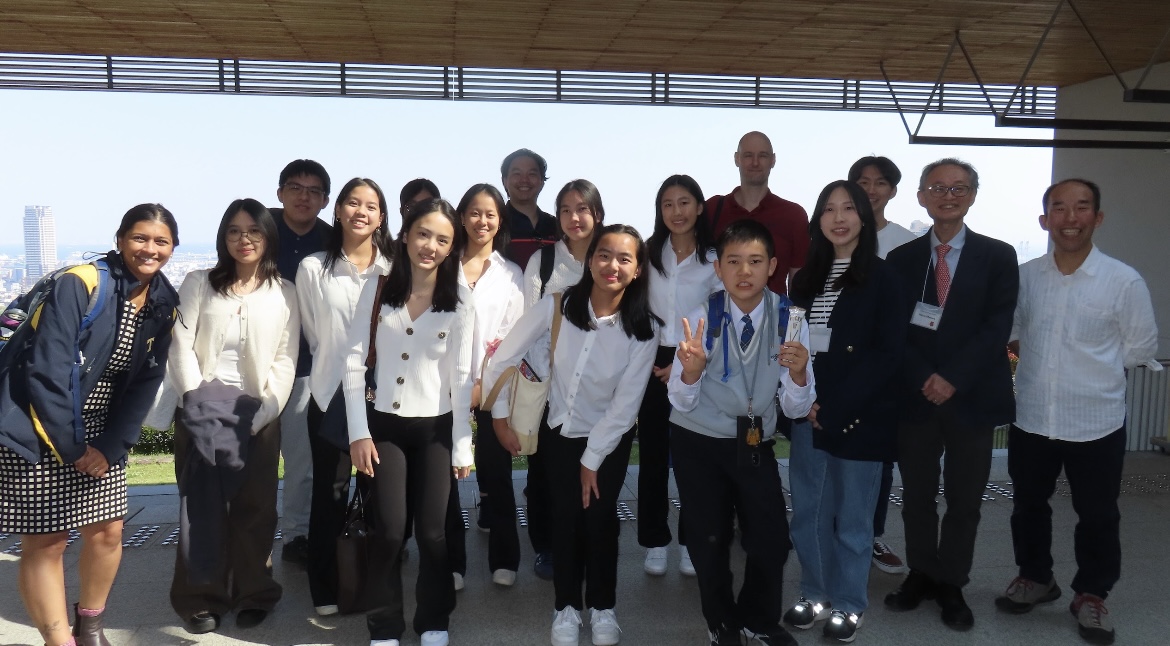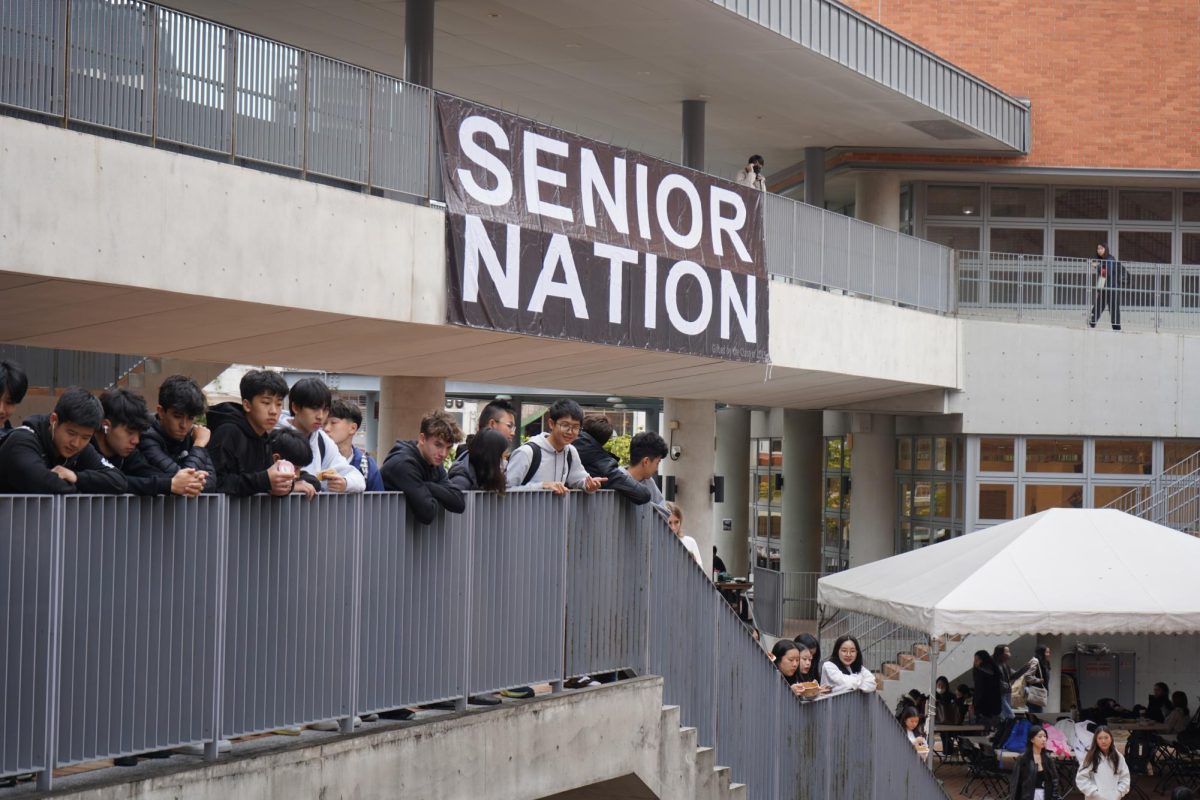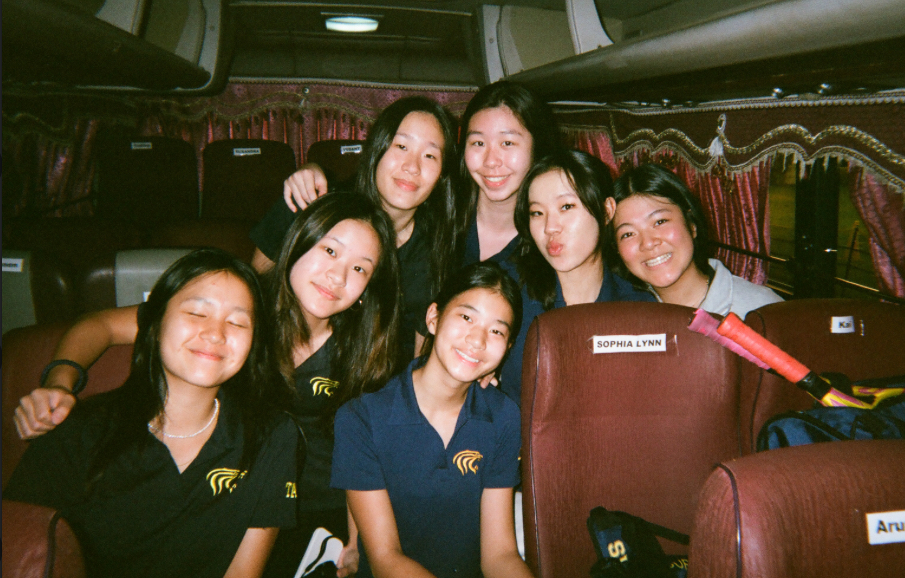“I should buy this” was Mr. Richard Arnold’s first thought as he watched a documentary featuring Helen Zia, back in the early 2000s. Her message on Asian American civil rights was “just so powerful.” More than ten years later, TAS students were able to hear this message from her in person.
Mr. Arnold was able to get in contact with Mrs. Zia with the help of Mr. Bing Shen, a parent from a former TAS alumnus. “Last march, I was talking to Mr. Bing Shen about a student’s term paper about Vincent Chin when we mentioned Helen Zia. He said, ‘Oh, I know her from attending Princeton together and I am still in touch with her.’” When Mr. Arnold returned to school after spring vacation, he received an email from Mrs. Zia. He was then able to invite her to visit TAS with the approval of a grant from the PTA.
Mrs. Helen Zia, a second generation Chinese American born in New Jersey, is a champion of many causes, but is renowned for her civil rights work for Asian americans. She is an award winning author who wrote Asian American Dreams: The Emergence of an American People, which traces the political history of Asians in American society.
After graduating from Princeton and leaving medical school, she became an autoworker in Detroit and discovered her life’s work as a journalist and writer.
“I realized that what I really wanted to do was to tell the stories that I was seeing all around but wasn’t seeing anywhere in books, newspapers, or magazines” Mrs. Zia said.
This lack of mention is what she calls MIH, or “missing in history”. Korean Americans suffered massive retaliation from the black community during the LA riots as response to the death of African American teenager Latasha Harlins by a Korean shop owner, Soon Ja Du. But “when you read about the LA riots today, it is portrayed as a black-white issue only. [The Asian Americans are] just not mentioned” she said.
Today, Asian Americans face a more subtle and complicated form of racism. Asian americans are often stereotyped as a model minority, “who never organize and never speak up.” According to Zia, this is the license for Asian Americans to be mistreated and abused, especially in the high tech industries. “They are the new coolies, who work hard and never complain” said Mrs. Zia. To combat this, she encouraged students to “think critically and question everything.”
The increased profile of Asian Americans, however, has brought positive social changes. “When I was a kid at school, there were about 500,000 Asians living in the US, including Hawaii. They could fit in a corner of Taipei city.” Today, there are almost 19 million Asian Americans. With the increase in numbers, there was also an increase in familiarity. “When I was growing up, Chinese food was chop suey. Now, we have much more variety.”
For Erin H. (12), Mrs. Zia’s speech had significant impact on her views on being a minority. “As a Chinese American living in a unique English speaking environment with an Asian American majority, I haven’t thought much on this issue before. I feel like this speech brought more attention to the prejudice that minority groups face.”
Helen Zia: Champion of Asian American Rights Visits
November 24, 2014
0




![[PHOTO COURTESY OF PIXABAY]](https://blueandgoldonline.org/wp-content/uploads/2025/03/white-18227_1280-1200x803.jpg)

![[PHOTO COURTESY OF PIXABAY]](https://blueandgoldonline.org/wp-content/uploads/2025/03/fire-6706674_1280-1200x800.jpg)
